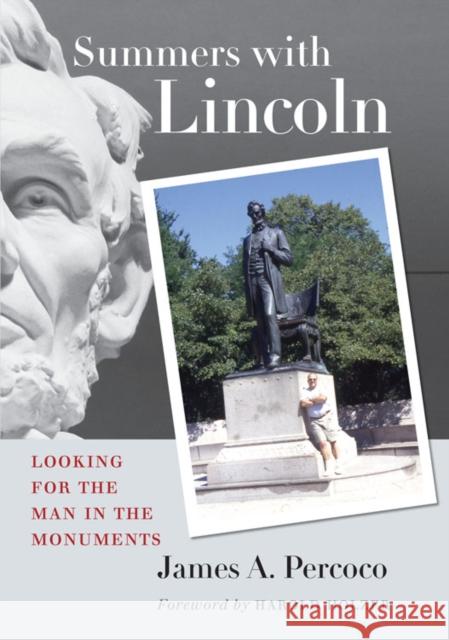Summers with Lincoln: Looking for the Man in the Monuments » książka
Summers with Lincoln: Looking for the Man in the Monuments
ISBN-13: 9780823228959 / Angielski / Twarda / 2008 / 292 str.
Summers with Lincoln: Looking for the Man in the Monuments
ISBN-13: 9780823228959 / Angielski / Twarda / 2008 / 292 str.
(netto: 312,52 VAT: 5%)
Najniższa cena z 30 dni: 324,14
ok. 22 dni roboczych.
Darmowa dostawa!
Across the country, in the middle of busy city squares and hidden on quiet streets, there are nearly 200 statues erected in memory of Abraham Lincoln. No other American has ever been so widely commemorated. A few years ago, anticipating the bicentennial of Lincoln's birth in 2009, Jim Percoco, a history teacher with a passion for both Lincoln and public sculpture, set off to see what he might learn about some of these monuments--what they meant when they were unveiled, and what they mean to us today. The result is this captivating book, a fascinating chronicle of four summers on the road looking for Lincoln stories in statues of marble and bronze. Of all the monuments, Percoco selects seven emblematic ones. He begins and ends the journey in Washington, starting with Thomas Ball's Emancipation Group, erected east of the Capitol in 1876 with private funds from African Americans, and dedicated by Frederick Douglass. Here, Percoco and his multi-ethnic band of teenage historians explore the impact of this Freedman's Monument showing Lincoln and a kneeling freed bondsperson. What does the statute say about race and freedom to today's Americans? What did Ball--and his sponsors--want it to say? From Augustus Saint-Gaudens's majestic Standing Lincoln of 1887 in Chicago, which helped move our image of Lincoln from great emancipator to that of statesman to Paul Manship's 1932 Lincoln the Hoosier Youth, in Fort Wayne, Indiana, which glows with an art deco sleekness, Percoco mines a wealth of Lincoln legacies--and our reactions to them expressed across generations. Here are controversial gems like Barnard's 1917 tribute in Cincinnati and Borglum's Seated Lincoln, struggling with the pain of leadership, beckoning visitors to sit next to him on his metal bench in Newark, New Jersey. At each stop, Percoco chronicles the history of each monument, spotlighting its artistic, social, political, and cultural origins. His descriptions of works so often seen as cliches tease fresh meaning from mute stone and cold metal--raising provocative questions not just about who Lincoln might have been, but also about what we've wanted him to be in the monuments we've built.











